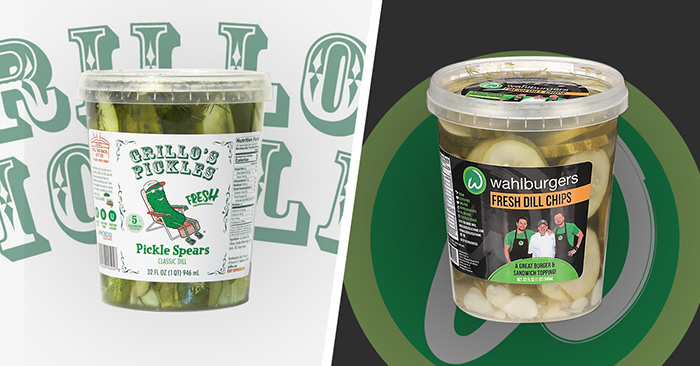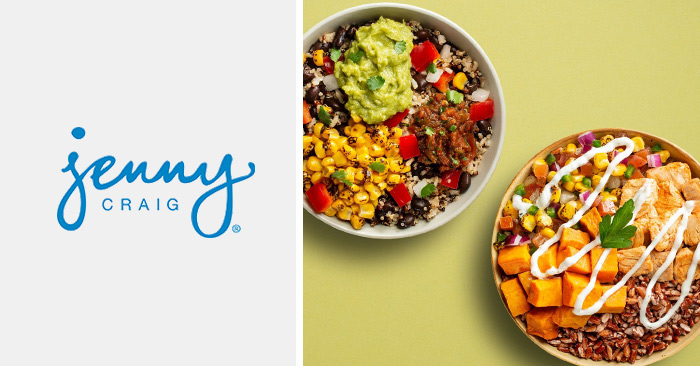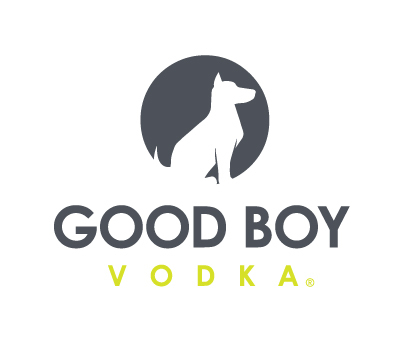News Roundup: Pickle Wars, Low-Carbon Beef

Grillo’s Taking Wahlburgers To Pickle Court
A battle is fermenting in a New Jersey District Court between two Boston-based pickle producers
Grillo’s Pickles has filed an injunction alleging that hamburger chain Wahlburgers is misleading consumers with its Wahlburgers At-Home packaged pickle line – produced through New Jersey-based co-manufacturer Patriot Pickle (also listed on the filing) – by falsely claiming their pickles are “fresh,” “all natural” and contain “no preservatives.”
According to a press release, Grillo’s is claiming that through laboratory testing it has determined that Wahlburgers pickles contain “considerable amounts” of benzoic acid, an artificial chemical preservative used to lengthen shelf life, which is not reported in the ingredient list.
The lawsuit has been filed under the Lanham Act and common law unfair competition claims. Grillo’s claims that Patriot Pickle has used recipe secrets to formulate the Wahlburgers pickles which “combined with similar packaging and near identical taste to Grillo’s, has harmed Grillo’s Pickles by diverting customers and grocery buyers away from Grillo’s and to Wahlburgers,” the press release stated.
“In positioning its products as ‘fresh’ and containing ‘no preservatives,’ our competitor is effectively duping consumers and retailers, especially those who are actively seeking all-natural food products with clean labels,” said Grillo’s Pickles president Adam Kaufman in a statement. “Like our customers, we understand and value the importance of ingredient transparency.”
Founded in 2008 as cart vendor in Boston Common, Grillo’s sold to family-owned Kings Hawaiian in 2021 with the pickle brand maintaining ties to the Boston area after the sale. Wahlburgers was founded in 2011 by actor Mark Wahlberg and brothers Donnie and Paul, who operate the chain. In addition to pickles, Wahlburgers At-Home offers fresh and frozen meat as well as condiments. A store locator on the brand’s website indicates the products are sold at New England supermarkets.

Carbon Credits For Cattle Raising
Kirkland, Washington-based technology company Melliens Inc. is trying to help tackle the beef industry’s greenhouse gas (GHG) emission problem with its Livestock Carbon Monitoring & Carbon Credit Sharing Platform.
Launched at the Consumer Electronic Association’s CES Convention this week, the platform will enable “beef producers to generate and sell carbon credits for practicing less carbon intensive agriculture,” according to the company press release. The platform comes after 10 years of research by Melliens founder Dr. Lee Hakkyo who developed the most effective way to quantify the amount of cattle carbon emissions at Jeonbuk National University in South Korea where he is a professor.
The “cowcarbon platform” quantifies and verifies reduced carbon emissions by ranchers and beef producers generating real-time carbon credits. The credits will be available as tokens that can be bought and traded by the general public, consumers and companies in a profit-sharing model that incentivizes livestock farmers to adopt climate-friendly beef production methods.
Melliens maintains a Korea-based headquarters in Jeonju, South Korea along with its U.S. headquarters and R&D facility in Washington state.

Jenny Craig Launches Fresh Meal Delivery
Legacy weight loss brand Jenny Craig is branching out into the direct-to-consumer meal delivery category with Jenny Fresh. The new heat-and-eat product line features dishes made with organic vegetables as well as sustainably raised, antibiotic- and hormone-free poultry and meats that are under 350 calories.The Jenny Fresh Bundle will also include gluten-free options as well.
“Our Jenny Fresh launch is a huge milestone for us as we are the first major weight loss brand to produce a fresh meal line and deliver it directly to consumers,” said Jenny Craig CEO Mandy Dowson in the company press release. “Beyond proven weight loss and weight management results, what Jenny Craig is most well-known for is our delicious and versatile meal offerings – and Jenny Fresh is the next evolution of that mission.”
The initial launch beginning in mid-January features one week of meals (seven dishes) for $99.
Along with the meal-delivery product line, Jenny Craig also announced it was releasing three new stovetop-ready, frozen skillet meals and a tech-enabled Menu Planner that allows subscribers to better track, plan and control their meal plans. This comes just weeks after Nestlé-owned ready-made meal delivery platform Freshly appears to be shutting down its direct-to-consumer meal delivery business and focusing on retail.

Liberation Labs Closes $20M Seed Round, Plans To Build Production Facility
Precision fermentation, alt meat producer Liberation Labs closed a $20 million seed round led by Agronomics and Siddhi Capital. The new capital will go towards building out a 600,000 liter, U.S. production facility. Additional investors on the round included CPT Capital, Thia Ventures, 8090 Industries and Echo.
The “novel proteins” ingredient provider is hoping to eventually scale up to a global network of international manufacturing facilities to commercialize its portfolio of products.
“Liberation Labs aims to dramatically increase availability of precision fermentation capacity to meet the rising demand for alternative proteins, fueled by population growth and increasingly health-conscious, impact-driven consumers,” said Mark Warner, co-founder and CEO of Liberation Labs. “Our business model enables us to not only meet the demand from today’s traditional food companies but unlock innovation among the dozens of emerging food-tech companies.”
The food tech company’s first commercial-scale facility is expected to begin commercial operation by the end of 2024. Liberation Labs is one of many cell-cultured and precision fermentation companies who have garnered investor interest to scale from proof-of-concept to full-scale production facilities. In June, mycelium-based alt meat company Meati amassed $150 million to help it scale production. Cell-cultured meat company Upside Foods pulled in a whopping $400 million in April to fund its own commercial processing plant.
Siddhi Capital has invested in a number of alt-meat and fermentation focused companies including SciFi Foods, New Age Meats, cell-based seafood company BlueNalu and plant-based honey maker MeliBio.


















